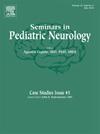Exploring the burden of West Nile Virus in resource limited regions: Challenges and implications for pediatric neurology
IF 2.1
4区 医学
Q2 CLINICAL NEUROLOGY
引用次数: 0
Abstract
West Nile Virus (WNV) is a vector-borne pathogen that poses significant public health challenges worldwide, particularly in regions with limited resources. While the virus is endemic in many parts of the globe, its impact on low-income countries remains disproportionately high due to inadequate healthcare infrastructure, limited surveillance systems, and lack of public health awareness.
This article explores the burden of WNV in these resource-constrained regions, focusing on the epidemiology, socio-economic consequences, and healthcare challenges faced by affected populations. It discusses the multifactorial factors contributing to the spread of WNV, including climate change, urbanization, and weak mosquito control measures.
Additionally, the article examines the implications for healthcare systems, such as the overwhelming demand for medical resources, limited diagnostic capacity, and gaps in effective treatment and prevention strategies. The article emphasizes the need for enhanced surveillance, early detection systems, and integrated public health strategies tailored to low-resource settings. It also calls for international collaboration and funding to improve research, prevention, and response mechanisms in these vulnerable regions.
探索西尼罗病毒在资源有限地区的负担:对儿科神经病学的挑战和影响
西尼罗河病毒(WNV)是一种媒介传播的病原体,在世界范围内,特别是在资源有限的地区,对公共卫生构成重大挑战。虽然该病毒在全球许多地区流行,但由于卫生保健基础设施不足、监测系统有限以及公众卫生意识缺乏,其对低收入国家的影响仍然过高。本文探讨了这些资源受限地区的西尼罗河病毒负担,重点关注受影响人群面临的流行病学、社会经济后果和卫生保健挑战。它讨论了导致西尼罗河病毒传播的多因素因素,包括气候变化、城市化和蚊虫控制措施薄弱。此外,本文还研究了对医疗保健系统的影响,例如对医疗资源的巨大需求、有限的诊断能力以及有效治疗和预防策略方面的差距。这篇文章强调需要加强监测、早期发现系统和针对低资源环境的综合公共卫生战略。它还呼吁国际合作和资助,以改善这些脆弱地区的研究、预防和应对机制。
本文章由计算机程序翻译,如有差异,请以英文原文为准。
求助全文
约1分钟内获得全文
求助全文
来源期刊

Seminars in Pediatric Neurology
CLINICAL NEUROLOGY-PEDIATRICS
CiteScore
4.80
自引率
0.00%
发文量
38
审稿时长
84 days
期刊介绍:
Seminars in Pediatric Neurology is a topical journal that focuses on subjects of current importance in the field of pediatric neurology. The journal is devoted to making the status of such topics and the results of new investigations readily available to the practicing physician. Seminars in Pediatric Neurology is of special interest to pediatric neurologists, pediatric neuropathologists, behavioral pediatricians, and neurologists who treat all ages.
 求助内容:
求助内容: 应助结果提醒方式:
应助结果提醒方式:


